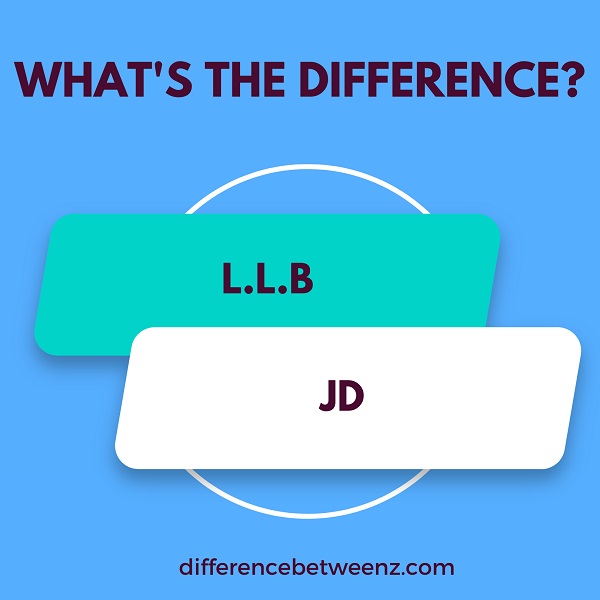When it comes to law school, there are a few different types of degrees you can pursue: the L.L.B, the JD, and the Masters of Law (MLaw). Although they all have to do with law, these degrees have different purposes and levels of education. So what’s the difference between an L.L.B and a JD? And which one is right for you? Read on to find out!
What is L.L.B?
L.L.B is a degree granted by law schools. L.L.B stands for Legum Baccalaureus, which translates to “Bachelor of Laws”. L.L.B programs typically last for three to four years and cover a wide range of legal topics such as contracts, property law, constitutional law, and civil procedure.
The L.L.B degree is the first step toward becoming a practicing lawyer and is required in order to sit for the bar exam in most jurisdictions. In addition to providing a foundation in legal theory, L.L.B programs also offer students the opportunity to gain practical experience through internships and clinics. As a result, L.L.B graduates are well-prepared to begin their careers in the legal field.
What is JD?
JD stands for Juris Doctor, and it is the degree one needs to become a lawyer in the United States. The JD is a three-year program that includes both academic coursework and hands-on experience in the legal field. In order to be accepted into a JD program, students must first complete an undergraduate degree and take the Law School Admission Test (LSAT). After completing the JD program, students must pass the bar exam in order to practice law. JD programs prepare students for a career in law by teaching them how to research cases, write legal briefs, and argue in court. Graduates of JD programs work as lawyers in private firms, government agencies, and non-profit organizations.
Difference between L.L.B and JD
L.L.B and JD are two types of law degrees that are popular among students who wish to pursue a career in law. L.L.B stands for Bachelor of Laws, while JD stands for Juris Doctor. Both L.L.B and JD programs typically take four years to complete, and both types of degrees prepare students for careers as lawyers. However, there are some key differences between L.L.B and JD programs.
For instance, L.L.B programs tend to focus primarily on theoretical legal knowledge, while JD programs place more emphasis on practical legal skills. Additionally, L.L.B programs are typically offered by universities in Commonwealth countries, while JD programs are more common in the United States and Canada. As a result of these differences, L.l.B and JD holders often have different career paths and prospects after graduation.
Conclusion
The L.L.B and JD are both law degrees, but there are some key differences between the two. The L.L.B is a British degree while the JD is an American degree. The L.L.B focuses more on British law, while the JD covers American law in addition to other topics.


